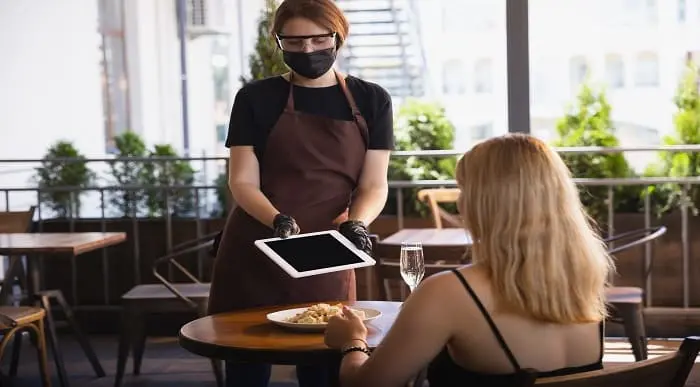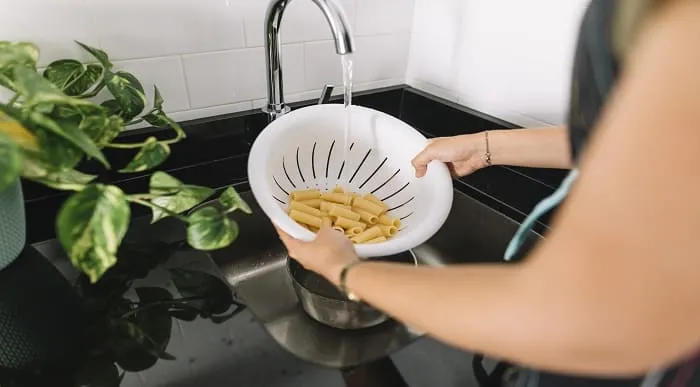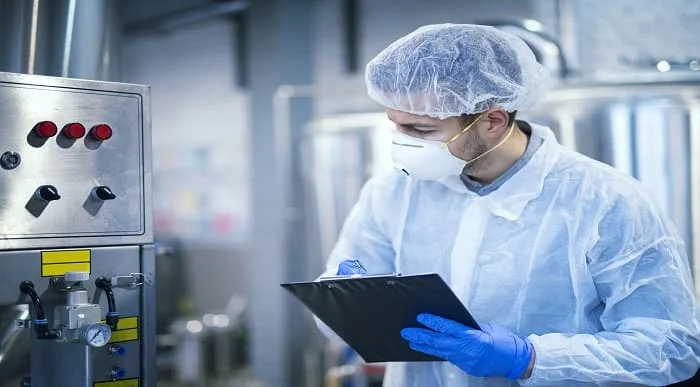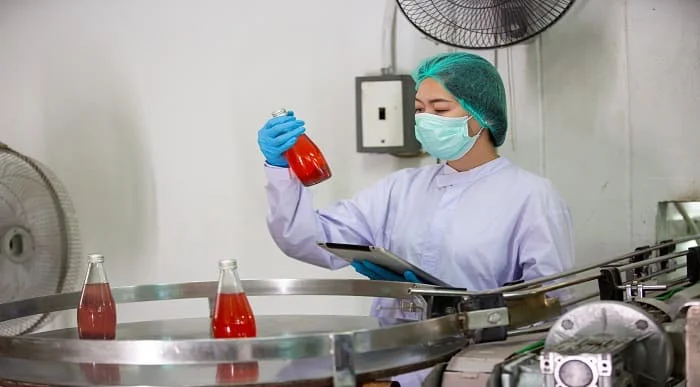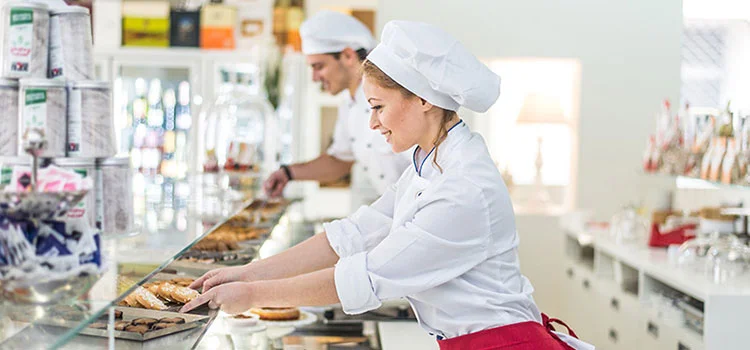Food Hygiene & Safety
Food Hygiene Certificate to Sell Sweets – It’s Mandatory or Not
If you are planning to run a confectionery of your own, you might be asking yourself, “Do I need a food hygiene certificate to sell sweets?”
Whilst it’s not a requirement under the law to have a food hygiene certificate to sell sweets, it is strongly recommended to have one by organisations like the FSA. You should also make sure you are complying with the UK food safety law even if you are selling foods you’ve not made on premises or selling foods from home.
That is why it is better for you and your business to undergo the necessary training and have a food hygiene certificate. You can find all the answers related to your queries regarding the food hygiene training and certificate from this blog.
Table of Content
- What is a Food Hygiene Certificate?
- Types of Food Hygiene Certificate
- What are the 4 Cs of Food Hygiene?
- Who needs a Food Hygiene Certificate?
- Do I Need a Food Hygiene Certificate For Selling Sweets?
- How do I get a Food Hygiene Certificate?
- How Long is a Food Hygiene Training?
- How Long Does a Food Hygiene Certificate Last?
- Do you need a Licence to Sell Confectionery Items in the UK?
- Do you need Insurance to Sell Sweets?
- Do you need to Register your Food Business in the UK?
- Frequently Asked Questions (FAQs)
- Conclusion
- What to Read Next:
What is a Food Hygiene Certificate?
A food hygiene certificate is an official document that proves to health inspectors that you have undertaken a food handler training course approved by your state and that you are well informed about food safety.
The food hygiene certificate ensures that you have an understanding of how food can make people sick after becoming contaminated due to various factors, how to keep the equipment clean, how to store food properly and so on.
Types of Food Hygiene Certificate
Several online training courses in food safety and hygiene are available that you can enrol in to assure consumers that your establishment upholds food hygiene to the highest value.
The food hygiene training courses emphasise the need for food hygiene and introduce participants to the necessary practices to maintain hygienic conditions. Upon completion, the awarding bodies provide a basic food hygiene certificate to the qualified participants.
The training ranges from level 1 to 4 depending on the degree of difficulty of the training.

Food Hygiene and Safety Level 3 Course Online
- Accredited Courses
- Tutor Support Included
- 3 Installment Plan at checkout
- 14 Days Money Back Guarantee
Level 1 includes training on basic food practices for food handlers who serve food directly to the customers like waiters, porters, restaurant staff and food delivery drivers.
Level 2 food hygiene training discusses relevant food laws, food hygiene legislation, food handling practises, explanation of food hygiene and orientation to food hazards. The training is for cooks, baristas, sous chefs, and the like who directly handle and package food.
Level 3 is for supervisory level food operators who have the power to delegate tasks such as managers and need advanced knowledge of food hygiene. Here you will learn strategies to reduce hazards, along with food handling practices.
Level 4 is for advanced-level food handlers who have a supervisory role and handle tasks such as the implementation of a HACCP food safety management plan. This level includes more technical information on food safety hazards and principles of controlling them.
Top Courses of this Category
What are the 4 Cs of Food Hygiene?
You need to be aware of the basics of food hygiene in order to have a complete knowledge of food hygiene and safety. The Food Safety Act 1990 covers four key areas, which can be termed as the 4 Cs of food hygiene. They are-
- Cleaning
- Cooking
- Chilling
- Cross-contamination
Cleaning
One should establish a thorough cleaning schedule for maintaining a clean kitchen and food storage area. One can ensure this by monitoring cleaning schedules, sanitising equipment that will be in direct contact with food prior to use and also maintaining adequate supply for cleaning and sanitising.
Cooking
It is important to cook all meat, poultry and seafood properly to kill bacteria that can cause food poisoning. Make sure to cook the foods at the proper temperature and use a food thermometer if necessary.
Chilling
It is important to store raw foods at the correct temperature in the fridge or freezer to prevent contamination with foodborne diseases causing bacteria.Keep cooked food in the refrigerator (at or below 40°F) within two hours of cooking.
Cross-contamination
Keep raw food like fresh vegetables or bread, away from raw meat, poultry, and seafood. Use separate cutting boards, knives, utensils, and plates for raw and cooked food. Throwing away the packaging from meat and poultry immediately can help reduce the risk of contaminating your cooking area.
Who needs a Food Hygiene Certificate?
Generally, food businesses are encouraged to at least have training equivalent to Level 2 for food hygiene. Whether you are preparing and distributing the food yourself or selling pre-prepared, fresh food such as ready-to-eat cakes, pies, and other pastries, it’s still advised that you take Level 2 Food Hygiene training.
Additionally, supervisors must at least have Level 3 expertise in managing food hygiene and safety. You can have on-the-job training or you can avail the courses online.
In the UK, food hygiene certificates are provided to businesses that have undergone accreditation by a competent authority. Though it is not required by the UK food hygiene law, food hygiene certificates serve as additional proof of your commitment to food safety.
Do I Need a Food Hygiene Certificate For Selling Sweets?
It is not mandated by law to have a food hygiene certificate to prepare or sell sweets; however, having one will ensure you have up-to-date knowledge of all relevant legislation.
Proper food hygiene is a must when it comes to selling food, especially from home. Even if you are selling wrapped sweets, you are still storing and handling these foods directly. That’s why you need to have the knowledge of food hygiene.
How do I get a Food Hygiene Certificate?
To get a food hygiene certificate, you need to purchase and complete the level of training you require for your business and then you will receive a professionally printed certificate and be able to download a hard copy immediately upon the course completion.
On-Demand Accredited Courses
Analyze data quickly and easily with powerful PHP library! All datasets included where beginners welcome!
How Long is a Food Hygiene Training?
Typically, it takes between 1 and 2 hours if you have opted for a Level 2 Food Hygiene Training online. If you handle or prepare food in your workplace, it is your legal duty to take Level 2 food hygiene training.
How Long Does a Food Hygiene Certificate Last?
While food hygiene certificates mostly do not have an expiry date, it is recommended by the food industry experts to update the certificate every three years or so to correspond with legislation and technological developments in food hygiene.
Do you need a Licence to Sell Confectionery Items in the UK?
In order to start a new food business, whether a confectionery or any other, you need to get a licence. If you prepare food at home and sell it from a stall at the local market, you will need a licence for both your home and stall.
Do you need Insurance to Sell Sweets?
There are always some risks involved in starting up any business, so it is better to have proper insurance for selling sweets as well. Your insurance will ensure to cover some of the unavoidable issues.
For example, product liability insurance covers you in the case of someone getting injured or their property being damaged by a product you have sold. Although these risks may be small with sweets, a small insurance premium is always worth it.
Do you need to Register your Food Business in the UK?
It is also required to register your food business establishment at least 28 days before beginning your trade. The registration is a legal requirement and cannot be refused.
The registration applies to all businesses that store, sell, distribute or prepare food or drinks. Once you have submitted a signed food business registration form, you can start your business.
Frequently Asked Questions (FAQs)
What do I need to sell sweets from home?
In order to sell sweets from home, you need to do the followings-
-Register your business to the local authority
-Declare your income to HMRC
-Obtain a food hygiene certificate
-Provide ways for customers to contact you
Create privacy policy and return policy
How are the rules enforced to sell sweets from home?
The government of the UK has guidance for running a business from home. Those are-
- getting permission from your mortgage provider or landlord
- getting permission from the local council
- insurance
- tax allowances
- business rates
- health and safety
Can I make food at home and sell it in the UK?
You can definitely make food at home and sell it in local markets or online. However, you’ll need to get a licence for any kind of food business you start or any premises you carry out food operations, even if it’s temporary.
Do I need a food hygiene certificate to sell sweets from home?
It is neither mandatory nor a legal requirement to have a food hygiene certificate for selling sweets from home. However, having one means you are dedicated to providing your customers the best and hygienic food items.
Do you need a Food Hygiene Certificate to Sell Sweet Cones?
As mentioned previously, the law does not require you to obtain a food hygiene certificate for selling sweets or sweet cones but, having one would be a plus point for your business.
Conclusion
In order to run your business smoothly, you should be well prepared and have adequate knowledge of food hygiene and safety. Since any kind of unintentional fault can affect the health of your customers, you need to be well aware of the food hygiene rules which you can achieve through food hygiene training. Your certificate will also help you to get customers as it ensures that your business practises hygiene.
What to Read Next:
- Can You Reheat Chicken? Storage, Defrosting and Reheating Techniques
- Why is a Well Designed Kitchen Important to Food Safety – Guide
- Can You Reheat Rice? What is The Science of Reheating Rice
- What is the Difference between Chef and Cook
- 7 Baking Tools and Equipment – A Complete List
- Health Safety and Hygiene Rules to Follow in the Kitchen
- How to Become a Chef in the UK and Worldwide – Difference Include



